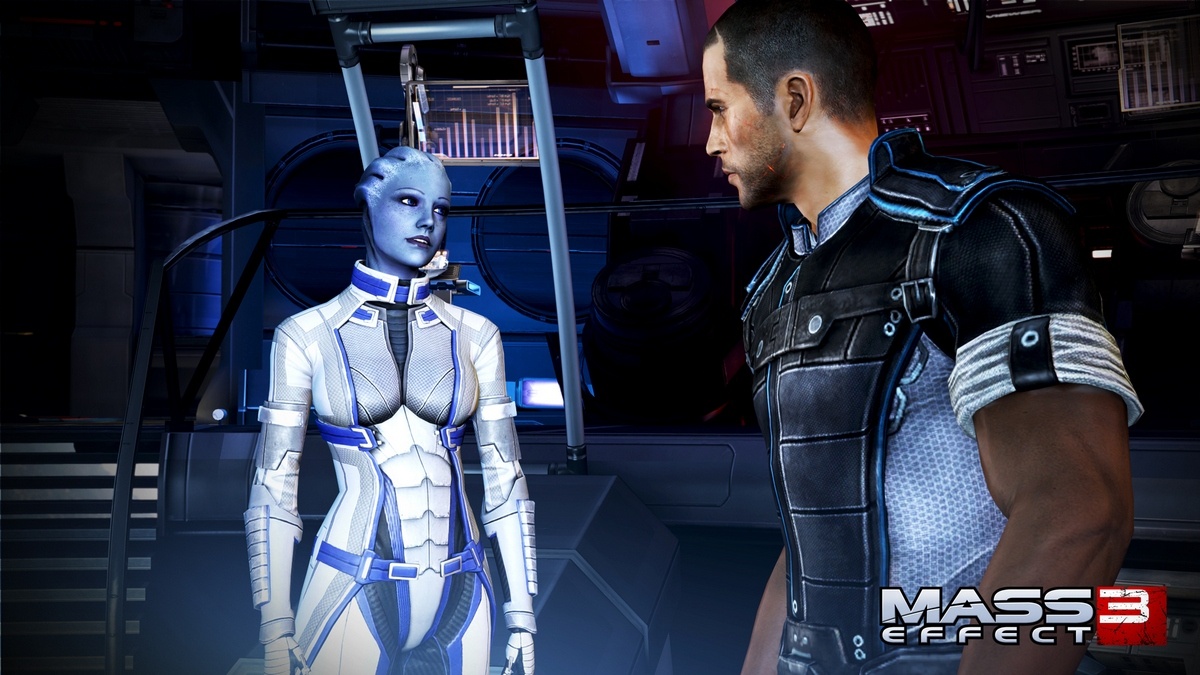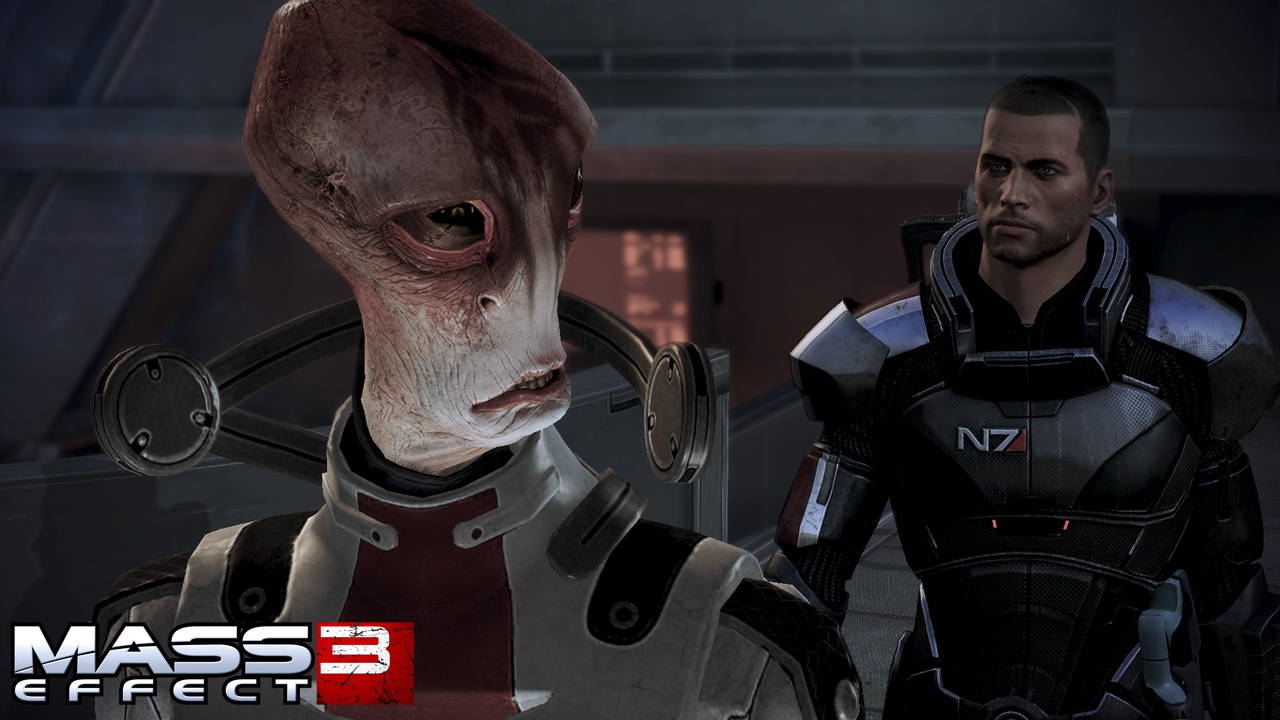A Mass Effect on Homosexuality in Games
Why homosexuality in Mass Effect 3 is important for the future of interactive storytelling.
This week, Mass Effect 3 joins the ranks of video games striving to offer a realistic portrayal of human relationships. BioWare's decision to allow both male and female homosexual partnerships inside the Mass Effect universe is a telling move. While games like Rockstar's Bully, Microsoft's Fable series, Atlus's Persona 4, Jordan Mechner's The Last Express, Bethesda's The Elder Scrolls V: Skyrim, and the Dragon Age series have all dealt with themes of homosexuality, the critical and commercial success of the Mass Effect series represents a significant step forward in the mainstream representation of realistic human behavior.
Portraying human relationships as they truly are has never been a priority for games. More so than noninteractive media like films and print, games strive to provide an escape from the reality we know. While some game developers adhere to the art-for-art's-sake philosophy, the concept is far from being universally practiced in the games industry. So it remains the case that it's how you play the game that's going to offer the most excitement, not the context in which you do it. This is why to date only a handful of games have attempted to capture more than a one-dimensional representation of the way humans relate to one another; anything richer or more complex runs the risk of turning into something as utterly unexciting as real life.
But it seems BioWare is trying something different. The developer's layered role-playing worlds contain more than just rich lore: these games offer choice. They offer more choice than which class to pick or which dialogue tree to follow; it's a choice that attempts, however rudimentarily, to mirror real life. While we don't get to pick our sexual preference in the real world, by striving to offer some semblance of realistic human behavior, Mass Effect 3 becomes one of only a handful of AAA games that attempts to insert more meaning into player choice. Lesbian, gay, bisexual, and transgender relationships are not commonly explored themes in video games; in fact, games have traditionally struggled with the exploration and depiction of romantic relationships in general. Again, it comes down to a predetermined ideal; while an integral part of our humanity, romance and sex do not present an exciting premise on their own, at least not one that easily lends itself to the populist idea of what makes a good video game.
Did BioWare struggle with its decision at the risk of being accused of making a political statement?
"We take fan feedback into consideration, and that's one of the things fans asked for," says Robyn Theberge, associate project manager on Mass Effect 3. "It is role playing; it's fantasy. And part of the fantasy is to romance whomever, whenever you wish. And that's something we take into consideration when we plot the romances."
If BioWare is simply responding to the wishes of its community, does it follow that a sizeable number of players want games that portray a more realistic view of human relationships, romantic and otherwise? Does it follow that players want to see more AAA games that don't simplify, trivialize, and misrepresent the complexities of human interaction?
BioWare--and as an extension, Mass Effect 3--are in the unique position of setting an example. We already know that video games can intelligently deal with intimate and complex human emotions, but can they do so to mainstream commercial success? Can a franchise like Mass Effect prove that there is room for emotional elegance in the AAA space?
While it can be argued that in-game romances tied to particular achievements render the original intention to offer diversity meaningless, it does not change the fact that players are given those choices in the first place. While the Dragon Age games were often criticized for offering a stereotyped view of homosexual behavior and relationships, BioWare's attempt to offer diversity should not be overlooked.
"Writers don't have a responsibility to make exclusively noble gay characters; they have a responsibility to portray human gay characters," Irrational Games cofounder Ken Levine tweeted in March last year in defense of Dragon Age 2.
From what BioWare has said about the game, Mass Effect 3's homosexual romances are not shoehorned gay options thrown in to give a semblance of political correctness. Whether that is true or not remains to be seen. More and more developers see the future of video games as one of increased expression, where games can channel the empathy created in a virtual world and transport it to the outside; a future where games can help players better understand human nature.
What could be more satisfying than playing a game and learning about what it's like to be a different person--from another time, from another place, of a different race, gender, or religion? Even if Mass Effect 3 fails to live up to our expectations of a realistic portrayal of human nature, we cannot ignore the fact that this is a significant push toward a more mature form of interactive storytelling.
[CORRECTION]: This article originally misidentified Irrational Games cofounder Ken Levine. GameSpot regrets the error.
[CORRECTION]: This article originally contained the following statement: "While it's true that we don't get to pick our gender, religion, or sexual preference in the real world [...]" Upon reflection, this statement has been corrected. GameSpot regrets the error.
Got a news tip or want to contact us directly? Email news@gamespot.com


Join the conversation